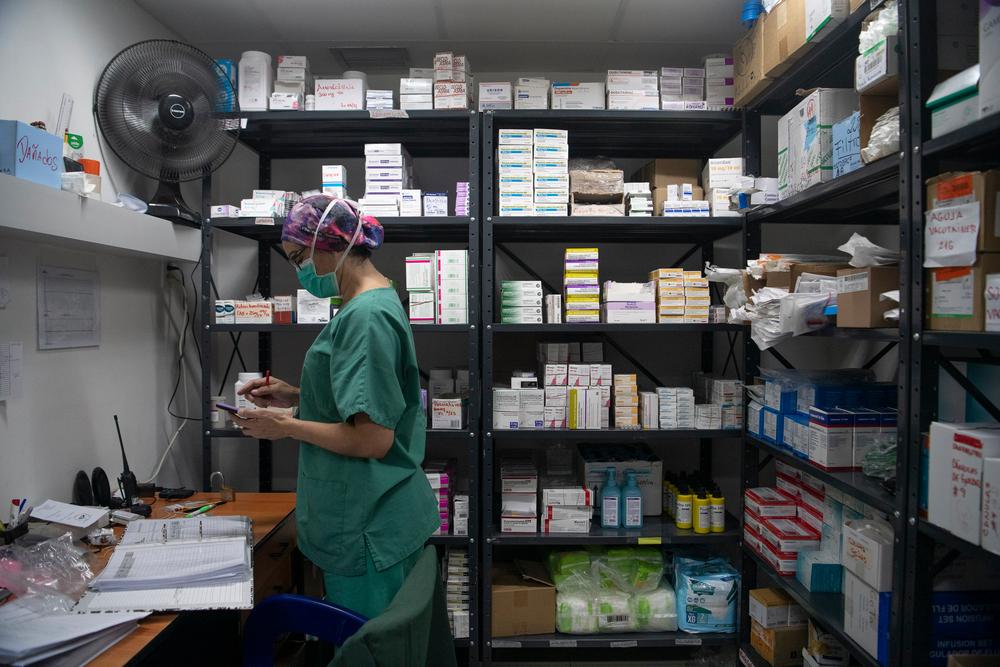Today the UK’s Medicines and Healthcare products Regulatory Agency (MHRA) announced the approval of molnupiravir for the early treatment of people with mild to moderate COVID-19 who are at increased risk of developing severe disease. Currently, WHO recommends the use of monoclonal antibody treatment for people with early stage COVID-19, but these treatments are expensive and complex to use, requiring intravenous infusions that are more complicated to administer in many lower- and middle-income countries.
Victorine de Milliano, UK Policy Advisor for the MSF Access Campaign, said:
This is the first approval of an oral antiviral treatment for COVID-19. If made widely accessible, molnupiravir could provide significant benefits in lifesaving care for COVID-19 patients, specifically in countries where people continue to lack access to vaccines and other expensive and complex monoclonal antibody treatment options.
It is therefore imperative that molnupiravir becomes widely available and affordable as quickly as possible for all people across the world, not just richer countries like the UK. This is particularly important for lower- and middle-income countries, which lack broad access to COVID-19 vaccines and therapeutics.
Last week, Merck/MSD signed a deal with the Medicines Patent Pool. This is a welcome step, but the agreement excludes key upper-middle-income countries like Brazil and China, where there is strong, established capacity to produce and supply antiviral medicines. This may hinder broader independent production and supply of generic molnupiravir to ensure sustainable access for all and will limit the number of people able to access treatment. The Merck/MSD and Medicines Patent Pool agreement also includes an unacceptable clause that undermines the rights of manufacturers using the license to challenge patents on molnupiravir.
With the approval of molnupiravir, the UK must acknowledge the importance of global access to this drug. This case illustrates precisely why the landmark ‘TRIPS Waiver’ proposal desperately needs to be agreed as part of the global COVID-19 response, yet the UK government continues to oppose it. We urge the UK government to stop blocking the TRIPS Waiver so that countries around the world can freely produce versions of this lifesaving treatment.
